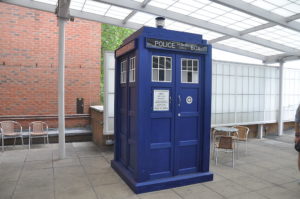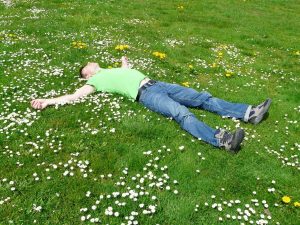Ah – February. Marathon training schedules rule the roost. People counting miles, gradually building up the distance. Niggles appear, cold and flu rear their ugly heads, they get ignored, sometimes they disappear, but sometimes they grow more and more insistent. Occasional days get missed, sometimes a week but still the schedule grinds on. Some people, having not got on the bandwagon a month ago are now looking to start an “accelerated” marathon programme- get fit for 26 miles in less than 3 months. Yes. It’s February.

Soon enough it will be March, the mornings are slowly getting brighter, runs will be getting longer and then we’ll be into April and the focus of all the hard work.
This is certainly not a blog giving you advice about how to follow a marathon training schedule and I’m not about to tell you that the one you are following is right or wrong. However, this might be a timely moment to think about recovery and how you’re coping with the gradually lengthening runs as we come into this critical period. The most frustrating thing I see is people coming in for physio a week before their “big day” having gone out to do their “last big run” prior to the marathon, and have pretty much broken themselves down in the process having been on a steadily worsening road for the last few weeks.
Even then, it isn’t a case that they *won’t* run the marathon the week after; unless there is something really really wrong they’ll go ahead and do it anyway… but it won’t be painless, and it certainly won’t be pretty.
Is there a way we can reduce the chance of breakdown prior to the event?
When someone asks me about the best way to prepare for something and it is less than 2 months away, I’m reminded of some advice I heard a while ago…. Start 4 months ago. Not useful, but very true.

Time travel… rarely an option
If time travel isn’t an option (and it rarely is), then it is pretty important to think about how to keep your body ticking over, keeping it strong and stopping it from gradual breakdown over the weeks and months of training.
We hear a lot about stretching and how that is really good for you, though there is limited evidence that it actually helps reduce the rate and incidence of injury, specifically amongst runners. If it feels good, though, absolutely, do it. Some runners swear by it, others swear at it.
Sports massage has also been bandied about as a cure all for getting people through unforgiving marathon preparations. As someone who originally trained in Sports Massage, of course I’m going to agree – though to be honest, it hasn’t been proven that it makes any difference to the tissues in your body… it might change the processing between your muscles and your brain, which makes it all feel better, but that may be as far as it goes. To be honest though, if I had something which made me feel better, I’d still go with that!
One of the keys is to actually understand what you are doing in your training. Essentially the whole idea is to build up your tolerance to running over long distances while giving you enough time for the body to recover, regenerate and stay healthy without breakdown. It is based on the Goldilocks theory of training – not too much, but not too little.
Do too much too soon and your body will break down. Do too little and you won’t be ready in time.

To much too soon?!
Programmes are based around an Ideal: ideally you will be able to recover from the running and allow your body time to regenerate. Unfortunately, life gets in the way. Reduce the amount of sleep, reduce the good nutrition you might otherwise get, increase stressors like work, family etc, and pretty soon you have a situation where you are steadily digging yourself into more of a hole – physically and mentally, just about clinging onto health… and then you get the cold, the flu, whatever, you miss a week of training and then plunge back in at a greater intensity than you were at before… before you know it you’re struggling.
Don’t be that person. Realise that although the schedule is pretty important, be aware that running the distance is only a part of the training. Recovery, be it de-stressing, good nutrition, adequate hydration, good sleep practices, sports massage are an integral part of the training – not something to be paid lipservice to. Neglect recovery at your peril.
 Take time to run. Take time to recover.
Take time to run. Take time to recover.
Do too much too soon and your body will break down.
Do too little and you won’t be ready in time.




